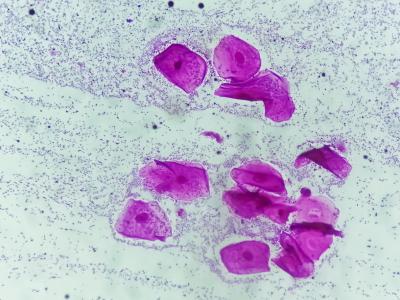Pig roast Salmonella alert implicates meat supplier for 2nd time
The US Department of Agriculture's Food Safety and Inspection Service (FSIS) yesterday issued a public health alert over the risk of Salmonella infection related to preparing and consuming whole hogs for pig roasts, after investigation into a recent outbreak in Washington state linked illnesses to Kapowsin Meats for a second year in a row.
On Jul 19 the Washington State Department of Health (WSDH) notified the FSIS about an illness cluster involving Salmonella I 4,[5],12:i:-. A trace-back investigation based on three confirmed cases with illness onsets ranging from Jul 4 to Jul 7 found that all patients had eaten whole hog roasters for barbecues from Kapowsin Meats.
In the summer of 2015, the same company was linked to Salmonella outbreak that sickened 192 people in five states, most in Washington. Two strains were implicated in that outbreak: Salmonella Infantis and Salmonella I 4,[5],12:i:-.
Some of the isolates from that outbreak were resistant to some antibiotics, and the FSIS said tests on the current strains are pending. It added that the Centers for Disease Control and Prevention (CDC) is collaborating with it, state, and local officials on the investigation.
Last summer's outbreak triggered an FSIS public health alert warning consumers about the risk of Salmonella from whole pigs used for pig roasts and a list of steps for handling the products safely.
In its statement yesterday, the FSIS said it issued the public health alert because Kapowsin representatives weren't available to take part in a recall committee conference call earlier in the day, but it is working with the company to identify what products need to be removed from commerce. In the meantime, it repeated its whole hog food safety tips, which noted that roasting one is a complex process that poses a variety of food safety risks.
After last year's outbreak emerged, the FSIS found unsanitary conditions at Kapowsin, and the company temporarily suspended operations.
Jul 20 FSIS statement
Dec 2, 2015, CIDRAP News scan "Pork-related Salmonella outbreak grows to 192 cases, declared over"
Hawaii DOH: 22 new cases of hepatitis A on Oahu
The Hawaii Department of Health (HDOH) today reported 22 more cases of hepatitis A on the island of Oahu as of Jul 20. This brings the total number of cases to 74 since the outbreak began on Jun 12, with 26 people requiring hospitalization.
The HDOH said in a statement that officials are investigating the source of the cluster of Oahu infections. HDOH officials said the long incubation of the contagious foodborne illness, and the difficulty of remembering foods eaten and restaurants visited, can make epidemiologic questioning difficult.
To date, two restaurants on Oahu, a Taco Bell and a Baskin-Robins, have reported that an employee infected with hepatitis A handled foods throughout June and July. The HDOH emphasized that at this point no infections have been linked to those restaurants. But it recommends that people who have contact with infected individuals receive a hepatitis A vaccine within 2 weeks of exposure. In some cases, hepatitis A can cause severe liver damage.
According to the CDC, there where an estimated 2,500 acute hepatitis A infections in the United State in 2014, the lowest number in 40 years.
Jul 21 HDOH statement
WHO: 158 UK E coli cases likely tied to salads
Yesterday the World Health Organization (WHO) said England and Wales are combating an Escherichia coli O157 PT34 outbreak likely caused by contaminated salad, with 158 illnesses reported so far. The WHO said gene sequencing of isolates is hinting at importation from countries in the Mediterranean.
According to a disease outbreak statement, the first case was documented on Jun 21; by Jul 14 there were 158 cases identified, resulting in 4 hospitalizations. The vast majority of cases (91%) have been found in England and are linked to catering outfits and residential care facilities.
"Multiple analytical studies have provided evidence that consumption of mixed salad leaves, particularly from catering establishments such as cafes and restaurants, is associated with the infection," the report said. Analysis is ongoing, with no food samples testing positive for O157 E coli thus far.
The WHO does not believe the current outbreak has spread outside the United Kingdom.
Jul 20 WHO release











